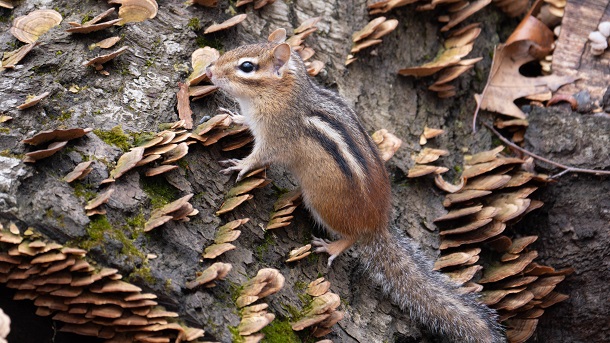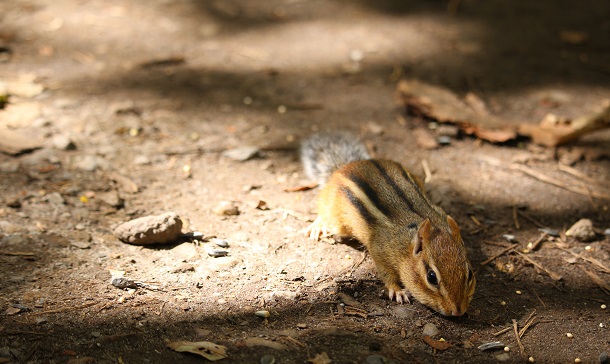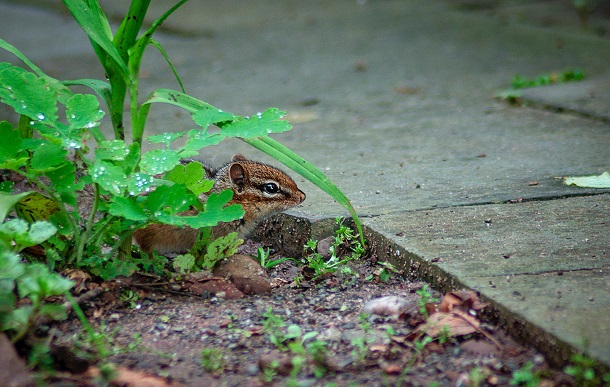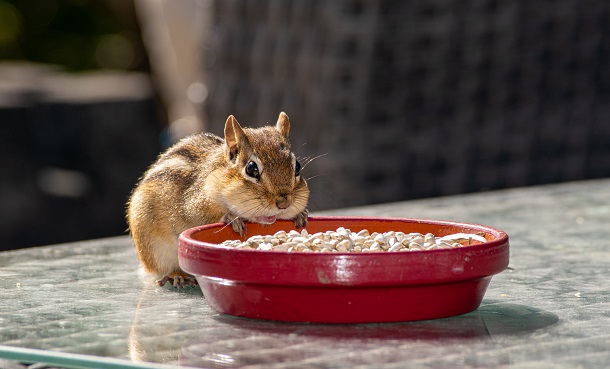Chipmunks are small, fluffy and funny animals with legendary appearances. That makes them one of the most popular pets.
Whether you have a chipmunk as a pet or not, it is possible to get into a weird situation – how to tell if a chipmunk is dying? And most importantly, how to help him if it’s possible?
IN THIS ARTICLE:
How To Know If a Chipmunk is Dying?
There is no person who doesn’t like these cute, small animals. They are so fast and so funny to watch. Many people recognize them as perfect pets.
They belong to the rodent category, and it is possible to see them in your backyard or in the woods, where there is plenty of food for them.


Unfortunately, it isn’t always everything nice and cute. What if you find a chipmunk on the ground and don’t know what to do? Here we’ll mention dying chipmunk signs and how you can help and comfort this little animal.
Ways To Tell If a Chipmunk Is Dying
There are many ways that will tell you chipmunk isn’t okay. The following signs will help you identify this condition, so you can react accordingly.
- Notable signs of blood and wounds – Check their body to see if there are some signs of an animal attack, car accidents, bites and other wounds. You can look out for glue, wires, strings or oil on their body.
- They look dizzy or fluffy – If they try to walk, chipmunks can lose balance or move around in the circle.
- Have seizures or spasms – Check how the chipmunk acts and if there is some strange behavior
- Discharge from mouth, nose, eyes or ears – Check their face and ears, it could be bad infection.
- Noticeable tumors – If you notice a big and hard mass on their body, chipmunks probably struggle with tumors for a long time.
- Passing blood, pus or diarrhea – Try to gently move their tail and check if everything is okay. If there is passing blood, pus or diarrhea, the chipmunk is definitely dehydrated and in bad condition.
- Mixtures of nuts and seeds, legumes and vegetables – Try to give different varieties each day.
- Fruits – But offer it in moderation, max 3 days a week. A lot of sugar content can be harmful for chipmunks.
- Insects – They provide proteins and are crucial in chipmunk’s diet


Also, you should keep in mind that when chipmunks are sick, they don’t act like that due to their nature. That means if there are visible signs of sickness, unfortunately, there is just a matter of day whether they will survive or die.
Do Chipmunks Play Dead?
It is common behavior when it comes to the animal world.
For example, if the chipmunk breaths, but does not move and his eyes are closed, there are big changes he’s playing dead.
They are intelligent animals that can sense danger from a great distance. The purpose of this play-death game is to trick their enemies, so they don’t end up getting eaten.
This process is called thanatosis.


So, if a chipmunk breathing but not moving, it’s you who should move, it might don’t want your presence. Just take a quick look at his body to check if he is injured.
However, if the chipmunk breathes heavily, there is something very wrong with it. You should go to the vet immediately.
How To Save a Chipmunk?
Of course, you’ll try to do some things in order to help this cute animal if you find it in trouble.
If chipmunk is dehydrated (see the signs described above), warm the hydrating solution and give it to the dying chipmunk. You can use a syringe or dropper to make this task easier. Repeat this procedure every couple of hours.


If a chipmunk is injured (or you don’t know what’s going on) contact your local wildlife department.
Explain the chipmunk condition to them and follow their advice. Until they come, find a soft cloth or towel, place it in a small box or container and put the chipmunk inside. Try to keep the animal warm and calm.
How To Save a Chipmunk In Shock?
Chipmunks can experience shock for several reasons and the most common reason is internal trauma or blood loss. Also, they can go into shock because of excessive fluid loss from vomiting or diarrhea, airway obstruction, respiratory illness, etc.


In the animal world, the shock must be taken seriously, since this is the number one killer of animals. Visible shock signs include pale white gums, rapid breathing, weak heartbeat and low body temperature.
Try to conserve their body heat, stop bleeding, relieve airways and check their heartbeat. Keep the animal warm and take it to the vet.
What to Feed an Injured Chipmunk?
First and most importantly, listen to vet recommendations. However, you can have some food they love to eat.


And always have fresh and clean water available for your chipmunk.
How to Comfort a Dying Chipmunk?
This is always very hard. If your beloved chipmunk dying and there is nothing you can do about it, try to provide comfort for their last hours or minutes.
Keep your chipmunk warm and hydrated.
Place the animal on a soft blanket and supervise it all the time. Try to give your chipmunk some water with a syringe. You can mix 1 teaspoon of salt with 3 tablespoons of sugar and add the mixture to 1 quart of warm water.
As mentioned above, you should hydratize dying chimpunk every hour or two.
That’s all you can do in such situations and you can be proud of yourself – you did a good job making chipmunk’s last moments easier.
To Sum Up
These fun-loving, fast and hyperactive creatures can be great companions. Apart from fun, you should be able to recognize when they are sick and how to tell if a chipmunk is dying. If you are able to recognize those signs, there is a chance you can help them.




















Leave a Reply